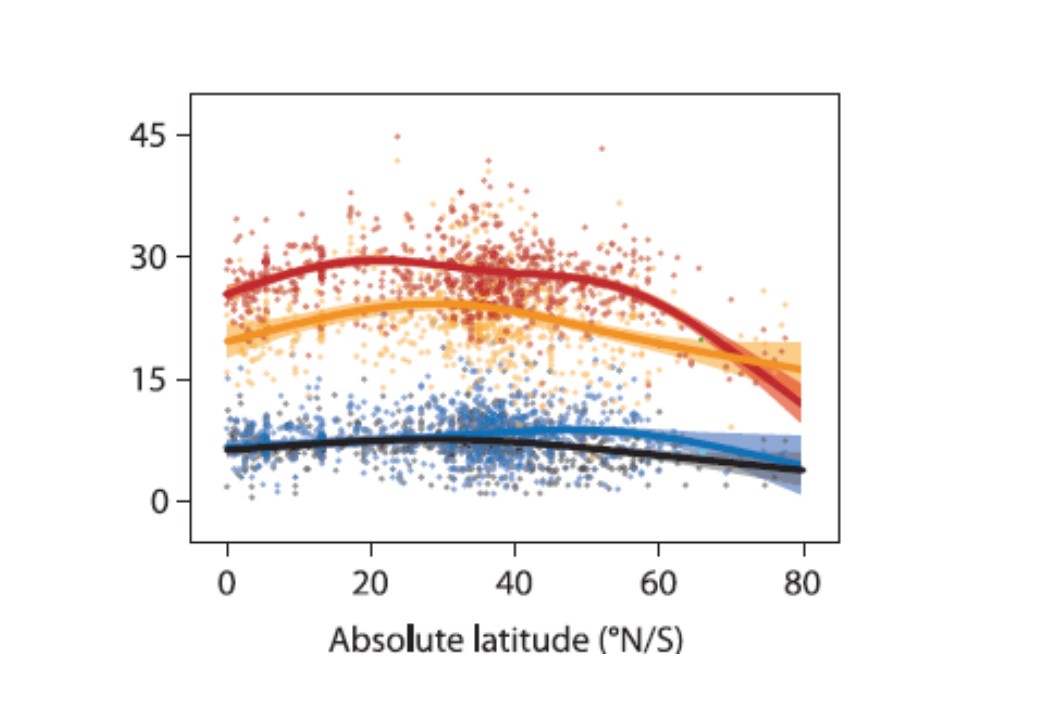Rising temperature affects fish more than previously thoughtLauantai 15.8.2020 klo 21.02 - Mikko Nikinmaa A recent study in Science (Dahlke et al., Science 369, 65–70, 3 July 2020) has evaluated, how fishes are affected by temperature increase associated with climate change. Fish are an increasingly important food source for humankind, so their success in warming waters is of primary importance for feeding human population. Consequently, the ability of fish to tolerate warming waters has been studied intensively. Earlier, it has been estimated that only 5 % of fish populations would be adversely affected by temperature increase predicted to occur by 2100. A lot of fisheries experts have sucked of relief about this, as overfishing  is a major threat presently, and it is thought that overfishing may decrease fish populations by half before 2050. In fact, it has been estimated that temperature increase would make population sizes of fishes larger in some areas. is a major threat presently, and it is thought that overfishing may decrease fish populations by half before 2050. In fact, it has been estimated that temperature increase would make population sizes of fishes larger in some areas.
The limitation of earlier estimations has been that the possibility that possible differences between temperature tolerances of age groups have not been estimated. This was done in the study by Dahlke et al. The results show that temperature tolerance of different age groups of fish is markedly different. The embryos (developing fish within egg cases) and spawning adults (blue and black lines in the figure) appear to have up to 20oC smaller tolerated temperature range than free-swimming larvae or non-reproducing adults (red and orange lines). The difference is greatest at mid latitudes, and decreases both (and especially) in the arctic and near equator. The reason for decreased temperature tolerance is probably due to mismatch between oxygen uptake and consumption. Oxygen uptake is limiting in the embryos enclosed within eggs, whereas the oxygen transport of free-living larvae and juvenile and non-reproducing adults becomes more effective. In spawning adults the oxygen consumption increases without improvement of oxygen transport. Physiological studies about the interaction between temperature, oxygen transport and consumption are needed in different life stages of fish to enable conclusive evaluation of what causes life stage-dependent variation of temperature tolerance. Regardless of the reason, it can be estimated that almost half of the fish stocks will be adversely affected by the temperature increase taking place, if the present international agreements are fulfilled. Together with the reduced stocks because of overfishing this can result in marked reduction in the fish food available to humankind. However, if we would do appropriate climate actions, one could prevent virtually all effects on fish populations. |
|
Avainsanat: climate change, fisheries, oxygen transport |
